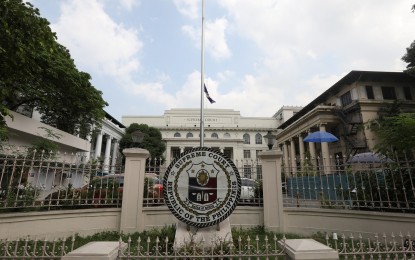
Supreme Court of the Philippines (PNA photo by Yancy Lim)
MANILA – The Supreme Court (SC) has granted a writ of amparo sought by a former Bayan Muna party-list lawmaker Siegfred D. Deduro, saying that “red-tagging threatens an individual’s right to life, liberty or security.”
In a 39-page decision published on Tuesday, the SC reversed the ruling of the Iloilo Regional Trial Court that dismissed Deduro’s petition for a writ of amparo, and ordered that the writ “shall be issued against respondent Major General Eric Vinoya, in his capacity as commanding officer of the 3rd Infantry Division, Philippine Army, or his replacement.”
“We deem it proper to reverse the order of dismissal and require the RTC to conduct a summary hearing. This ensures that petitioner's cause of action and respondent's defense are fully ventilated because this Court is not a trier of facts,” the Sc said.
“It must be underscored that we are not making a categorical ruling on the merits of the prayer for the grant of the privilege of the writ of amparo. Ultimately, the RTC must still determine the relevance and consistency of the evidence presented by both parties, while bearing in mind the surrounding circumstances and the protection that the writ is meant to provide.”
In his petition before the Iloilo RTC, Deduro claimed that on June 19, 2020, in a meeting of the Iloilo Provincial Peace and Order Council, military officers gave a presentation where Deduro, among others, was explicitly identified as part of the Communist Party of the Philippines-New People’s Army (CPP-NPA) hierarchy.
Deduro claimed posters were also put up in different locations in Iloilo City with his image labeled as a criminal and terrorist.
The Iloilo RTC regional trial court dismissed Deduro’s petition prompting him to elevate the case to the SC.
The writ of amparo is a remedy available to any person whose right to life, liberty, and security is violated or threatened by an unlawful act or omission of a public official or employee, or of a private individual or entity. (PNA)
